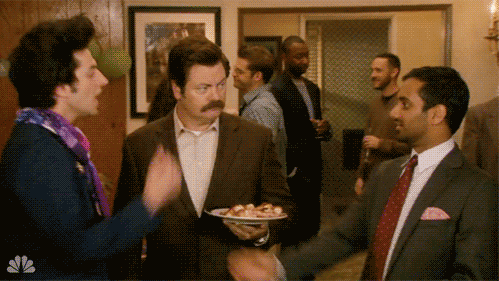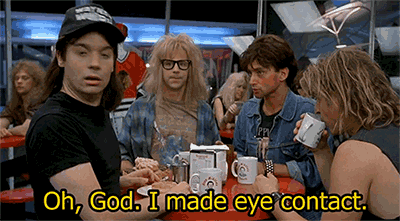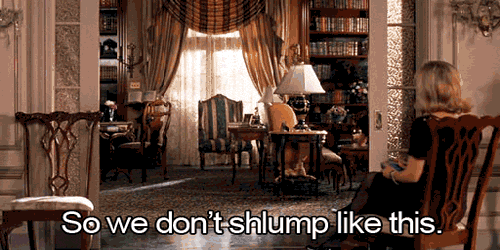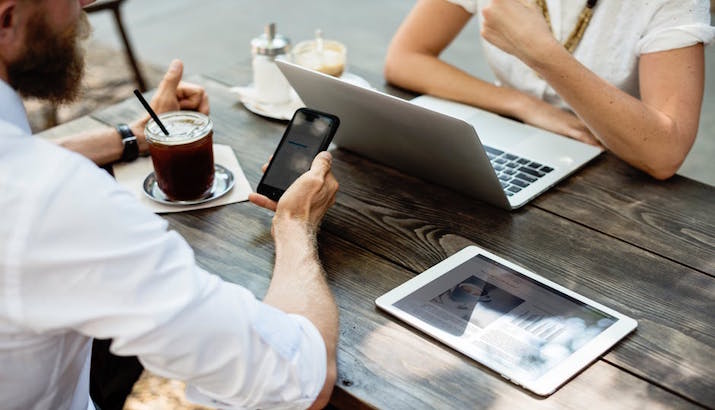How to master your body language in a graduate job interview
Face-to-face communication is essential in our digital world. Although much of our human communication involves emails, texts and social media, face-to-face communication is crucial to build relationships, boost effectiveness and build trust and credibility compared to digital interaction. In an interview, graduates often believe that if the right things are said, with the appropriate experience or credentials the possibility of getting the job is high. We practice our responses to interview questions, but often forget that our unconscious body movements and posture communicate as well as our verbal communication. Body language can often make or break job prospects.
The digital age has contributed to short attention spans, and first impressions let interviewers make decisions about you within the first few minutes of meeting before you even say a word just through your body language. According to studies, 55 percent of communication processed by our brains are based on a person’s body language. Judgements are made about us by our appearance, facial and nonverbal expressions and our posture whether we like it or not.
Being able to harness and excel at both verbal and non-verbal communication can put you at a huge advantage in both personal and professional realms. All the interview preparation in the world, from practice questions, and selecting the interview outfit cannot save you if your body language doesn’t express the right message. Graduate job interviews can be a daunting and a fine balance of needing to be confident but not overconfident, intelligent but not a know-it-all. Most of our communication is effectively portrayed through body language, so the ability to recognise and practice nonverbal communication is a great tool to help connect with your interviewer and help get the graduate job.

Handshake
During your graduate job search you can expect to shake a lot of hands in attempts to pin down a job. How a graduate shakes hands shows subtle nonverbal signals about personality, working style and intrapersonal skills and can either contribute to or take away from your professional image. Used everywhere from political endeavours between nations to football matches, shaking hands is a sign of respect. Commonly during an interview, graduate candidates shake hands before and upon the completion of the interview. It’s a simple physical motion but it develops the interviewers first impression and creates a lasting impression upon the end of the meeting.
The best handshake requires a level of firmness and fully engaging for the most impact. It’s not a competition to see who has the most crushing handshake or a test of machismo or strength. However, a limp or sweaty handshake gives the impression of self-doubt or nervousness. The handshake should last a few seconds before getting into the actual interview.
Smile
There is nothing quite like a smile to convey confidence to your potential employer. A friendly smile will tell the interviewer you are enthusiastic about the role and shows that you are confident in your abilities. It helps put the interviewer at ease and after the completion of the interview, the interviewer will remember you as a suitable candidate. A relaxed smile shows you’re willing to help create a more pleasant environment, conveys a sense of calm and can even diffuse an answer that wasn’t quite right.
Although professional experience is key to landing a graduate job, being more likable can increase your chances and help sway the recruiter’s opinion. Employers want to see good energy and enthusiasm to work in the organization and a smile helps to express your employability.
Eye Contact
Making the right amount of eye contact during a graduate interview is crucial to being successful in snagging a graduate job. Eyes portray the level of interest, confidence and professionalism during an interview. Establishing good eye contact makes you appear likable. However, good eye contact is different from staring which interviewers can find unnerving. The level of eye contact should be that of talking to a good friend. If being interviewed by multiple people do your best to make eye contact with everyone in the room.

Hand gestures
It is natural to make gestures with your body and hands since a big part of good communication is nonverbal. Emphasizing important point with non-distracting hand gestures is acceptable, but over the top hand gestures can be off-putting and come off as theatrical. On the flip side, studies show staying too still can be translated as the candidate being unattached or disengaged. Use gestures appropriately to help get the point across but be careful not to overdo it.
Posture
With the increase of sedentary lifestyles, most people tend to slouch and have bad posture. However, in an interview it’s important to aim for a neutral pose. Slouching during an interview shows lack of confidence and insecurity. It is often the unconscious act of making yourself small. Good posture shows credibility and professionalism while slouching or leaning back in an interview can suggest boredom or lack of interest. Your posture should be comfortable portraying to the interviewer your self-confidence in your abilities for the role.

Fidgeting
Rapidly shaking your leg, twiddling your thumbs or any other fidgety actions are annoying movements for an interviewer to watch and can be interpreted as nervousness and lack of preparation for the interviewer. Interviewers can be nerve-wracking and many of these little tics can surface unconsciously. Be aware of your body movements during taxing situations like interviews and get them under control. Besides being judged as unprepared or nervous, fidgeting can be taken as boredom or hyperactivity deeming you as an unsuitable candidate for a desk job. To eliminate these tics practice with a friend and become aware of your nonverbal cues to control them during interviews.
BrighterBox connects the fastest-growing companies with the brightest graduates.
Graduate Jobs



